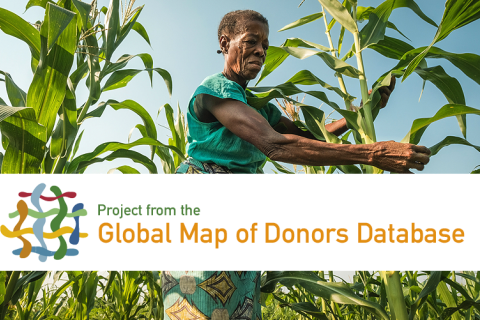Location
The International Land Coalition (ILC) is a coalition of civil society and intergovernmental organizations promoting secure and equitable access to and control over land for poor women and men through advocacy, dialogue and capacity building.
Resources
Displaying 236 - 240 of 259Rural Women’s Access to Land and Property in Selected Countries: Progress Towards Achieving the Aims of the Convention on the Elimination of All Forms of Discrimination against Women
This report is the fruit of collaboration between ILC, IFAD and FAO. It provides information on the historical background of the Convention and its Optional Protocol, the working methods of the Committee, as well as a summary of information provided in reports of selected countries. NOTE: See also the 2010 update of this document.
Rural Women's Access to Land and Property in Selected Countries: Progress Towards Achieving the Aims of Articles 14, 15 and 16 of the Convention on the Elimination of All Forms of Discrimination against Women (CEDAW)
Women's access to land is a fundamental factor in food security. Yet women all over the world suffer under discriminatory property and inheritance laws and customary practices which restrict their rights over the land on which they live and work. Articles 15 and 16 of CEDAW state the rights of women to property and inheritance. This report is a tool to help non-governmental organisations and multilateral agencies in advocacy and policy dialogue using CEDAW and the Optional Protocol (which allows individuals and groups to make complaints directly to the CEDAW committee).
Rural Women’s Access to Land and Property in Selected Countries
This report is the fruit of collaboration between ILC, IFAD and FAO. It provides information on the historical background of the Convention on the Elimination of all forms of All Forms of Discrimination against Women and its Optional Protocol, the working methods of the Committee, reservations, as well as a summary of information provided in reports of selected countries.
Towards a Common Platform on Access to Land
Towards a Common Platform on Access to Land has evolved through an extensive process of global consultation that was launched in 2000 at the eighth session of the United Nations Commission on Sustainable Development. It aims to stimulate and support public policies and country-level activities that improve access by the poor to land and productive requirements in order to improve their production and household incomes. Its global scope means that it can gather and disseminate knowledge and lessons learned from and to different countries and regions.
Support to the International Land Coalition Strategic Framework 2011-2015
General
Support to the Strategic Framework 2011-2015 of the International Land Coalition.












